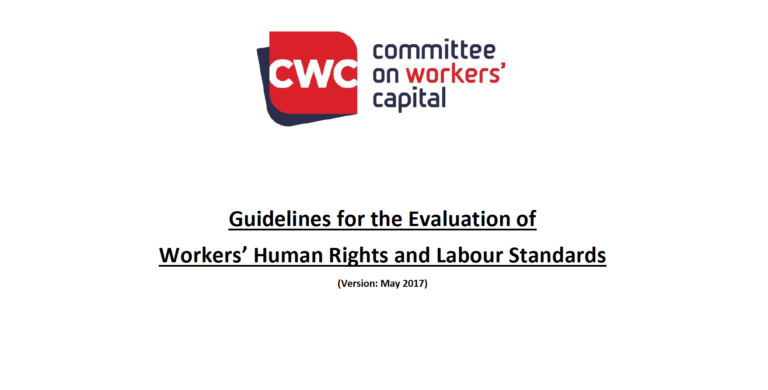The Committee on Workers’ Capital (CWC) Guidelines for the Evaluation of Workers’ Human Rights and Labour Standards are a comprehensive set of key performance indicators for investors to evaluate companies’ social performance. They were developed in response to concerns that investors are not equipped with tools to adequately scrutinize social issues such as labour relations in their environmental, social and governance analysis. The guidelines are inspired by key international norms, standards and frameworks including the UN Guiding Principles for Business and Human Rights, the OECD Guidelines for Multinational Enterprises and the ILO Fundamental Conventions. The indicators are grouped in ten themes: workforce composition, social dialogue, workforce participation, supply chain, occupational health and safety, pay levels, grievance mechanisms, training and development, workplace diversity, and pension fund contributions for employees.

